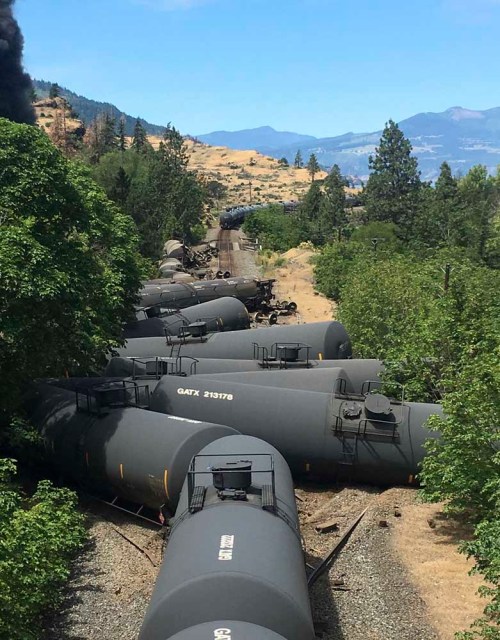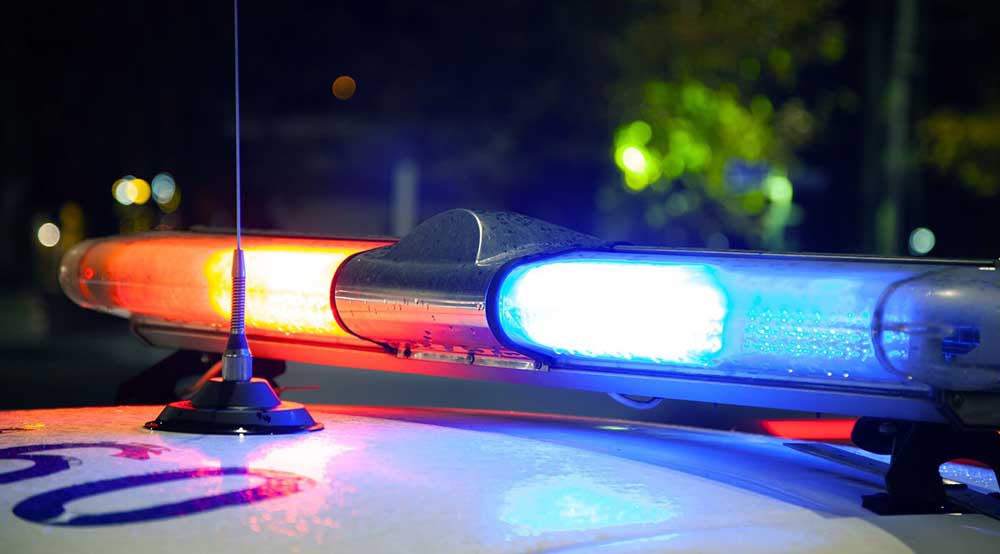High hazard railroads could face higher safety standards in 2020
Published 2:18 pm Wednesday, June 19, 2019

- Tank cars, carrying oil, are derailed near Mosier in 2016. After three failed attempts, Oregon lawmakers appear poised to pass a bill regulating the transport of oil by rail through the state.
SALEM — A bill, which would require high hazard trains carrying oil to have spill contingency plans approved by the Department of Environmental Quality, passed through the Oregon House of Representatives on a 56-3 vote Monday and is currently in the Joint Committee On Ways and Means.
House Bill 2209, if passed by the Senate, would charge railroads $20 per oil tank car plus an annual fee from their gross operating revenue, which would be put in the High Hazard Train Route Oil Spill Preparedness Fund.
The fund would be used by the DEQ for purposes related to high hazard trains.
Under the bill, railroads would be responsible for carrying enough insurance to clean a “worst case” oil spill, defined as 15 percent of the total lading of oil carried by the largest train anticipated to travel the high hazard train route, at all times.
“In no way do I believe that House Bill 2209 takes away from our ability to move oil or other energy type commodities away by rail. It recognizes that accidents do happen,” said Rep. Greg Smith, R-Heppner, who voted yes on the bill Monday.
Groups advocating for high hazard railroad regulations were hoping the requirement would be for enough insurance to cover an entire trainload of oil.
“There were a number of things like that where we did not get everything we wanted. But it’s way better than anything we have now,” said Rhett Lawrence, conservation director of the Oregon Chapter Sierra Club. “2209 does represent a good compromise. It’s certainly a strong step in the right direction.”
Reps. Mike Nearman, R-Independence, Bill Post, R-Keizer, and Werner Reschke, R-Klamath Falls, were the lone three no votes on the bill.
The bill comes three years after the derailment of several Union Pacific oil train cars in Mosier that were carrying Bakken crude oil from New Town, North Dakota, to Tacoma, Washington. The derailment caused a fire and resulted in the spilling of more than 40,000 gallons of oil, according to the Portland Business Journal.
Jim Appleton, fire chief in Mosier during the derailment, shared a testimony before the House in February. He said if the wind had been blowing like usual that day, and if first responders in both Oregon and Washington weren’t available as they had been, the fire caused by the derailment could have been much more serious.
“I’m here with a finding that this story of silver linings is largely down to pure luck,” Appleton said.
He said Union Pacific Railroad did everything they could, but still failed to detect the sheared bolts which led to the derailment.
“The result could have been destructive on a scale I have often contemplated and hope never to see,” he said.








